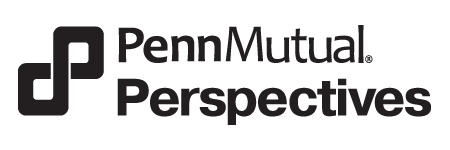What to Expect When Working with a Financial Professional
I recently led a Lunch and Learn session for the associates at Penn Mutual’s home office on what to expect when working with a financial professional. The session was very popular, which shows that people everywhere – even those who work at a life insurance company – have similar questions and concerns about working with a financial professional.
People don’t understand what it’s like to work with a financial professional, or they think that they need to be wealthier than they are. Actually, working with a financial professional is an easy experience. As for waiting until you have more money, the idea behind working with a financial professional is to use the resources you have now to build for your financial future.
Here are some of the questions that came up during our discussion:
What are the benefits of working with a financial professional?
There are three big benefits to working with a financial professional, as opposed to doing it yourself.
Coaching. Professional athletes, even the best in world, know that working with a coach can make the difference between being good and being great. The same can be said when working with a financial professional. A financial professional can serve as your coach, providing you with guidance suited to your personal financial needs and holding you accountable for achieving the financial goals you set for yourself.
Training and expertise. A financial professional has expertise gained from working with a wide range of people for a variety of needs such as retirement or college planning. This expertise might lead them to suggest options you might never have thought about yourself.
Time. If you’re a true do-it-yourselfer, that’s a big time commitment to ensure your plan is updated, monitored and performing optimally. A financial professional has the tools and the time to do this properly, saving you time and worry.
When’s the right time to start working with a financial professional?
I think you should start as early as possible. Once you get your first professional job out of school, I think it’s good to sit down with a financial professional and discuss your goals. Sometimes people think, “I need to save an emergency fund, or buy a house, before I can think about life insurance or investing,” but those are actually things that a financial professional can help you work towards. Even if you are only living paycheck to paycheck, it may be worthwhile to engage with a financial professional to help you find ways to free up money in your budget.
How much money do you need to have to work with a financial professional?
This is something that varies across the industry and across financial professionals. There are certainly financial professionals that require a certain minimum of investible assets. Our own team, however, is really looking to develop long-term relationships. It’s less about where you are now than about where you want to be. There are good financial professionals available to you no matter how much money you have to invest.
One comment on the “minimums” that some financial professionals ask for. People who have $50,000 to invest often have different issues than people who have $250,000 or $5 million. I believe that you should seek out a financial professional that is in tune to your specific needs and situation. You want a financial professional that is a good fit for you.
How should I go about finding the right financial professional?
Our team meets new clients primarily through referrals and introductions from existing clients or other professionals we have relationships with. I would encourage anybody that’s seeking a financial professional to do the same: Talk to your family, friends, and work colleagues – and ask them if they’re working with a financial professional they would recommend. I would try to speak with two or three different financial professionals, to see which you feel most comfortable with.
What should I look for in a financial professional?
This is an important question, and there are a number of things you should consider:
Licensed. First and foremost, you want to work with the products that are designed to meet your needs, including insurance and with securities and equities.
Part of a team. While many financial professionals work solo, the latest trend is to work as part of a team. There are a few advantages to working with a team. First, they can bring in teammates to deal with specialized questions. I focus my practice on retirement planning, but if I have a client with a complex estate planning question, I can bring in a colleague with that expertise. Second, by working with a team of financial professionals, there is always someone on the team available to help you if your primary financial professional is not available at that moment.
A good fit. Finally, you want someone that you are comfortable with. A relationship with a financial professional can be measured in decades, and, just like getting married, it’s worth taking the time to find the right person.
What should I expect from my first meeting with a financial professional?
In our firm, we start our first meeting by introducing our firm, describing the type of clients we work with, and exploring how we might be of service. From there, and more importantly, we will discuss the client’s goals and objectives. What would be their definition of a successful relationship in working with us? What are they looking for from us?
Only then, and only if this is appropriate and they feel comfortable, we will begin talking about the details of their current financial situation. We have a financial document checklist that we give everybody after their first meeting, with the goal in mind of having them gather all their financial documents prior to a subsequent meeting where we begin the development of a financial plan.
How does the financial professional get paid?
This is something that everybody wants to know, and that typically is something we discuss with prospective clients at that initial meeting. Financial professionals can be compensated any number of ways, including salary, commissions, and fees. Ask your potential financial professional how they get paid to ensure you are aware of and comfortable with the arrangement.
How often should I meet with my financial professional?
As a general rule of thumb, you want to meet at least annually with your financial professional to review your plan and your situation. I also recommend meeting whenever you have a change in job status, income, or personal status. Sometimes I meet quarterly with a client, but that is the exception. Of course, I am always happy to take a phone call from a client with a question.
How can I get the most out of meeting with a financial professional?
The best thing people can do when meeting with a financial professional is to come with an open mind and an open book. Be prepared to discuss what’s important to you, open and honestly, and be open to new ideas and suggestions.
As for preparation, I would suggest spending some time prior to the meeting to think about your goals and objectives, not just financial goals but also life goals. This will help guide the discussion. Beyond that, it’s good to have a working understanding of savings, expenses, account balances, insurance coverage, and other general information would be helpful typically at a first meeting. The details will follow in later meetings.
Summary: Financial professionals are not just for investing
There is this mistaken idea that financial professionals are only helpful for managing investments, but they are much more than that. I strongly believe that in order to have a successful financial plan, you really need to be working with somebody who does more than just manage investments. Insurance – be that life, disability, or liability insurance — is a big piece of this as well. Legal documents such as Wills and legal power of attorney need to be put in place. A financial professional may not be able to do these for you, but they can help you understand how they all work together to form a solid foundation for a financial future. No matter how good a financial professional is at helping manage your investment portfolio, if you experience a situation like death or disability or even a lawsuit, that can really change your financial plan in a heartbeat. Working with a financial professional can be a “holistic” relationship, supporting you in all aspects of your life.
This post is for informational purposes only and should not be considered as specific financial, legal or tax advice. Depending on your individual circumstances, the strategies discussed in this presentation may not be appropriate for your situation. The information in this material is not intended as tax or legal advice. Always consult your legal or tax professionals for specific information regarding your individual situation.
3098796RB_Jun22






